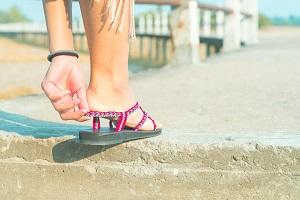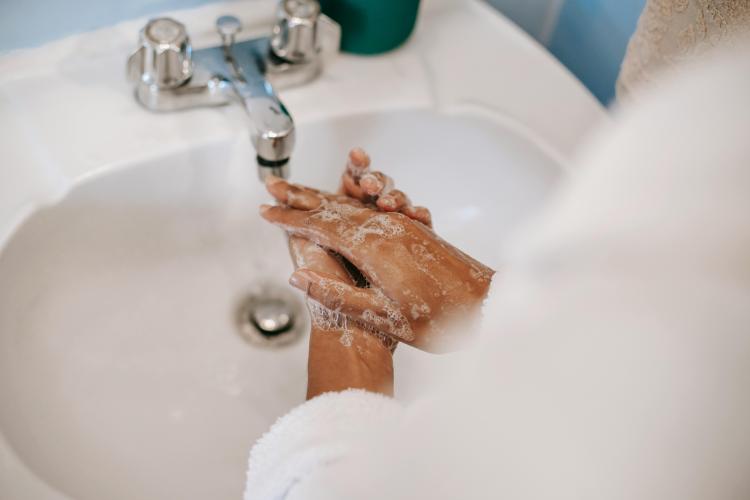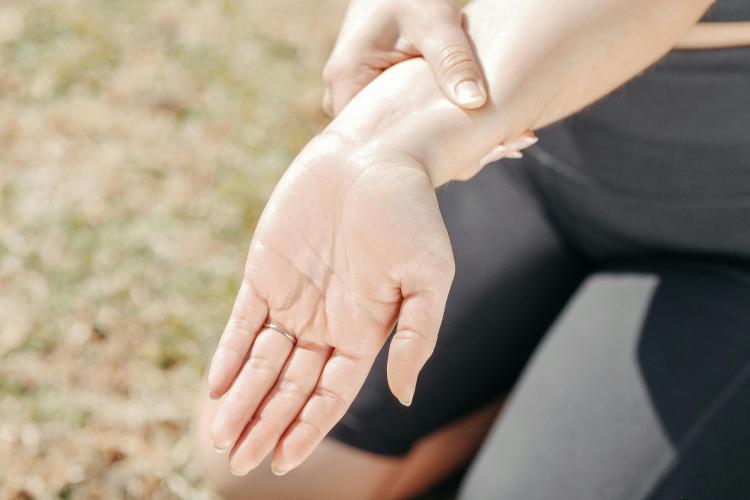
Choosing well-fitting footwear is one important way to protect your feet this summer, says Steven Adler, D.P.M., Director of Podiatry at Montefiore Nyack Hospital.
“Make sure summer shoes fit appropriately,” he said. “Flip-flops are fine for around the pool, but don’t wear them to play football or Frisbee—you can easily injure yourself.” Flip-flops with padding or thick bottoms can cushion the ball of your foot. Look for flip-flops with arch support to provide stability and balance.
Water shoes can be a good choice for the beach. They protect the feet from hot surfaces and sharp objects, like rocks and shells. They can also come in handy at a water park, to protect your feet from sharp objects and protecting against an athlete’s foot infection.
For walking or biking, choose a good-quality sneaker. Look for materials that are more breathable and moisture resistant. “If you’re hiking, wear supportive shoes that cover the ankle, especially if you’re walking on uneven terrain,” Dr. Adler said. Wear socks to avoid friction that can cause blisters. For biking, pick a sneaker with non-slip soles so feet stay securely on the pedals.
This summer, make sure you:
- Put sunscreen on the top of your feet. Don’t forget to reapply sunscreen when you come out of the water.
- To prevent fungal infections, check between your toes after going to the beach or pool, to make sure the area is clean and dry.
- Let your sneakers or flip-flops dry out before you wear them again, to help keep bacteria and fungus from growing. Bring an extra pair with you when you travel so you always have a dry pair.
- Drink lots of water. This will reduce foot swelling caused by the heat.
- Flex and extend your feet in all directions while you’re lounging by the pool or at the beach to help with blood flow.
People with diabetes shouldn’t go barefoot outside, Dr. Adler advises. “Understandably, people like the feel of sand or grass between their toes, going barefoot can result in a cut or a foreign object that may get lodged in the foot. People with diabetes may have reduced sensation in the foot and may not feel it. That’s why if you’re barefoot at the beach or pool area, it’s very important to check your feet when you leave to look for cuts or scrapes.” Dr. Adler has seen patients with diabetes who have walked barefoot on a hot driveway or sidewalk during the summer and ended up with significant wounds on the bottom of their feet.
Travel with these Foot-Friendly Items
When you’re traveling, bring these items for your feet:
- BandAids for minor cuts and scrapes
- Antibiotic cream for minor skin injuries
- Blister pads to protect against blisters
- Over-the-counter anti-inflammatories like Motrin or Advil for swollen feet
- Aloe vera for sunburns
Have a foot issue that is bothering you? Seek treatment with a podiatrist who can help. Search Podiatry via our Physician Finder at montefiorenyack.org.



 Upcoming Events
Upcoming Events



